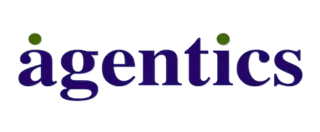
Master Marketing Agency Automation for Sales Success
GeneralOverview
Marketing agency automation stands as a cornerstone for driving sales success. By streamlining repetitive tasks and enhancing operational efficiency, it empowers teams to concentrate on strategic initiatives. This article illustrates how automation not only improves customer engagement but also boosts lead conversion rates. Furthermore, it underscores the necessity of adapting to emerging technologies, all of which culminate in a substantial return on investment for marketing endeavours. Embrace automation today to unlock your agency’s full potential.
Introduction
The rapid evolution of marketing agency automation is fundamentally reshaping how firms operate. This transformation equips them with essential tools to enhance efficiency and concentrate on strategic initiatives. By embracing automation, agencies can streamline repetitive tasks, elevate customer engagement, and ultimately drive sales success.
However, as the competitive landscape intensifies, a critical challenge emerges: how can agencies effectively implement and measure the impact of these automation strategies to ensure they remain ahead of the curve? The time for action is now—agencies must harness these advancements to secure their future in an ever-evolving market.
Understand Marketing Agency Automation
The optimization of marketing firms through marketing agency automation represents a pivotal advancement in the application of sophisticated software and technology, designed to streamline repetitive marketing tasks. This transformation allows teams to concentrate on strategic initiatives. Agencies can significantly enhance operational efficiency by utilising marketing agency automation to automate processes such as:
- Email campaigns
- Social media posting
- Lead generation
- Customer segmentation
The introduction of mechanisation minimises human error and elevates the overall customer experience. As we approach 2025, the integration of artificial intelligence (AI) technologies is poised to revolutionise promotional processes further, facilitating more personalised and data-driven customer engagement strategies. For instance, businesses leveraging marketing technology have reported an impressive 250% increase in purchase frequency through omnichannel approaches. Moreover, 79% of companies acknowledge that marketing agency automation is crucial for enhancing customer experience. Understanding these dynamics is essential for organisations striving to maintain a competitive edge in an ever-evolving market landscape.
Implement Effective Automation Strategies
To execute efficient mechanisation strategies, organisations must first identify repetitive tasks suitable for mechanisation, including client onboarding, proposal generation, and reporting. Selecting the right tools for marketing agency automation is essential; platforms such as HubSpot, Marketo, and Salesforce are recognised for their robust features tailored specifically for this purpose. At Agentics, we advocate for a personalised approach through our DARE to Deploy AI™ methodology, ensuring that each solution is customised to meet your unique business requirements. This process encompasses:
- Discovery & Diagnostics: Identify tasks for mechanisation and evaluate current workflows.
- Audit & Agreement: Conduct a thorough review of existing systems and propose a tailored strategy for streamlining processes.
- Requirements & Readiness: Assemble necessary tools and finalise objectives for the mechanisation project.
- Execution & Evolution: Develop and implement automated solutions, including automated dialers that enhance sales efficiency by streamlining communication and allowing teams to concentrate on high-value interactions.
Establishing clear workflows that outline the automated tasks is crucial, ensuring that all team members understand their roles and responsibilities. Regular training sessions can facilitate staff adaptation to new tools and methods, fostering a culture of continuous improvement. Additionally, prioritising data integration is vital to guarantee that all automated systems communicate seamlessly, thereby enhancing the experience for both staff and clients. With 58% of promotional decision-makers streamlining email processes and 49% improving social media strategies, the trend towards mechanisation is unmistakable. Significantly, automated emails accounted for merely 2% of all sends but drove 41% of total email orders, highlighting their effectiveness. Furthermore, 47% of marketers are using marketing agency automation to automate social media, making it the second most commonly automated marketing channel. With 90% of IT personnel attributing technological advancement to improved cross-team collaboration, organisations must remain proactive in this evolving landscape.
Measure and Optimize Automation Impact
To effectively assess the influence of mechanisation, agencies must establish key performance indicators (KPIs) that align with their specific business objectives. These indicators encompass:
- Lead conversion rates, with nearly 80% of marketers attributing their successes to marketing agency automation, indicating a significant rise in conversions due to these processes.
- Customer engagement metrics, such as click-through rates and engagement rates; for instance, the average click-through rate for Google Ads is 3.17% for search ads, serving as a benchmark for measuring engagement effectiveness.
- Overall campaign ROI, as marketing agency automation can generate an impressive return of $5.44 for every dollar spent, underscoring its potential to drive sales success.
Utilising advanced analytics tools enables organisations to monitor these metrics in real-time, facilitating prompt adjustments to strategies as necessary. Regular performance evaluations help identify patterns and opportunities for enhancement, ensuring that efficiency initiatives remain optimised. Furthermore, A/B testing on campaigns facilitated by marketing agency automation can yield valuable insights into audience preferences, allowing organisations to refine their approaches and improve overall effectiveness. By focusing on these KPIs, including the fact that 49% of marketers prioritise enhancing quality leads, firms can navigate the complexities of promotional systems more effectively and achieve substantial sales success.
Adapt and Evolve Automation Practices
In today’s ever-evolving promotional landscape, firms must embrace flexibility within their automated processes. Keeping pace with emerging technologies, particularly AI and machine learning, significantly enhances operational capabilities. A striking 69% of decision-makers in promotion plan to increase their investments in automated processes, underscoring the imperative for agencies to continuously evaluate their tools and methodologies.
Furthermore, 75% of firms leveraging AI for promotion aim to transition their personnel into more strategic roles, highlighting the critical importance of professional development in adapting to technological advancements. Collecting feedback from team members and clients is essential for pinpointing areas for improvement.
Additionally, active participation in industry conferences and training sessions is vital, especially given that 70% of marketing professionals report their employers do not offer generative AI training. Such engagements can yield invaluable insights into best practices and innovative strategies.
By fostering a culture of adaptability, agencies can ensure their automation initiatives remain effective and aligned with the dynamic needs of their clients, ultimately driving sales success.
Conclusion
Mastering marketing agency automation is not merely advantageous; it is essential for achieving sales success in today’s competitive landscape. By leveraging advanced technologies to streamline repetitive tasks, agencies can significantly enhance efficiency, reduce errors, and create a more engaging experience for customers. As we approach 2025, the integration of AI and data-driven strategies will further revolutionise how agencies connect with their audiences, transforming automation from a mere tool into a critical component of strategic marketing.
Key insights from this exploration underscore the importance of:
- Identifying suitable tasks for automation
- Selecting the right tools
- Establishing clear workflows
Effective implementation strategies, such as the DARE to Deploy AI™ methodology, can remarkably improve operational efficiency and team adaptability. Moreover, measuring the impact of automation through key performance indicators ensures that agencies remain focused on achieving their objectives and optimising their processes.
Ultimately, the journey toward successful marketing agency automation is ongoing. By embracing flexibility, investing in professional development, and actively seeking feedback, agencies can adeptly adapt to the rapidly changing marketing environment. This proactive approach not only enhances their operational capabilities but also positions them to meet the evolving needs of their clients, driving sustained sales success and ensuring a competitive edge in the market.
Frequently Asked Questions
What is marketing agency automation?
Marketing agency automation refers to the use of sophisticated software and technology to streamline repetitive marketing tasks, allowing teams to focus on strategic initiatives.
What tasks can be automated through marketing agency automation?
Tasks that can be automated include email campaigns, social media posting, lead generation, and customer segmentation.
How does marketing agency automation improve operational efficiency?
By automating processes, marketing agencies can minimise human error and enhance the overall customer experience, leading to increased operational efficiency.
What role does artificial intelligence (AI) play in marketing agency automation?
AI technologies are expected to revolutionise promotional processes by facilitating more personalised and data-driven customer engagement strategies.
What impact does marketing technology have on purchase frequency?
Businesses leveraging marketing technology have reported a 250% increase in purchase frequency through omnichannel approaches.
Why is marketing agency automation important for companies?
79% of companies believe that marketing agency automation is crucial for enhancing customer experience, which is essential for maintaining a competitive edge in the market.
Enjoyed this post? Share it with your network!
10 Best AI Sales Tools to Boost Your Team’s Performance

Discover the top 10 best AI sales tools to enhance team performance and drive revenue growth.
Mastering Test Call Numbers: A Step-by-Step Guide for Sales Directors

Elevate your communication with our guide on mastering test call numbers for sales success.
7 Ways Automated Outbound Calls Boost Sales Performance

Discover how automated outbound calls enhance sales performance and streamline communication.
